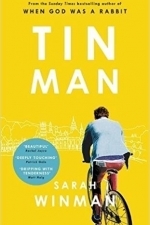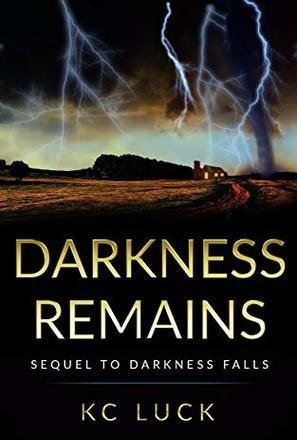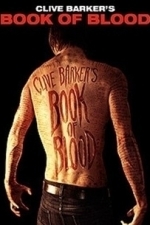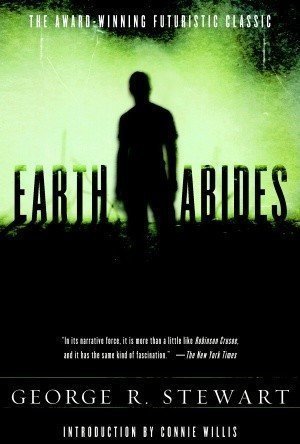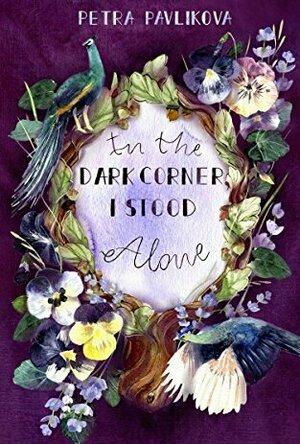
Bible Maps by Olive Tree
Reference and Book
App
Bible+ Maps by Olive Tree is a must-have app for reading and studying God’s Holy Word. Take notes,...
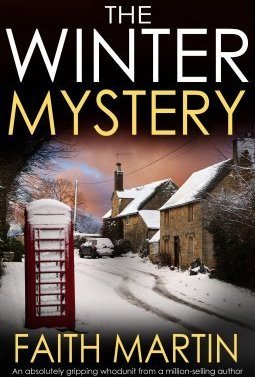
The Winter Mystery
Book
THE WINTER MYSTERY by Faith Martin Discover a new series of whodunits by million-selling author...
Contemporary Fiction Crime Mystery Whodunit
BookInspector (124 KP) rated Tin Man in Books
Sep 24, 2020
This novel carries a story of two friends, Ellis and Michael. They are the main characters in this book and the whole book was told from their perspectives. I shouldn’t forget Annie as well, even though she is kind of a silent character, she plays an integral part in the essence of this novel. All the characters are exceptionally crafted and incredibly complex. The whole novel got my brain working and imagination just flew free. I loved that author allowed the reader to paint the characters themselves, she allows you to know the story, but at the same time, there are so many details missing and so many questions left unanswered. I am not really sure whether I liked those gaps or not… because everything made so much sense. I found all the characters very likable and their internal relationship very amusing.
The narrative of this book was very confusing to me, it always keeps jumping between present and past, filling this book with romantic, but at the same time heartbreaking stories. I really enjoyed all the twists which author brought in, it made this book even more deeper and unexpected. I really liked the topics Sarah Winman was highlighting in this novel, such as homosexuality, friendship, HIV, family issues, loneliness etc. HIV hasn’t been discussed in the books for a while now, and I am great full for this reminder.
This was my first encounter with Sarah Winman’s writing, but there is no doubt that her writing style is very unique and absolutely masterful. The thing is, even though I admire her writing gift and I strongly believe she should be awarded for it, I am not a very big fan of it. Too many unanswered questions and I was not very satisfied with the closure of this book. Another thing what nagged me was the length of the chapters. Even though the book is not very long, the chapters were pretty long for my liking and it kind of dragged sometimes. So, to conclude, even though there were some things which were not for me, I truly think this book is a must-read, the characters and the plot are absolutely unique and very creative, and the prose is absolutely gorgeous and mentally challenging. Get it, read it, and I hope you will enjoy it! 🙂 (I know it is a confusing review and sometimes sentences contradict themselves, but that how this book made me feel… 🙂 )

WolframAlpha
Reference and Education
App
Remember the Star Trek computer? It's finally happening--with Wolfram|Alpha. Building on 25 years of...
Chris Sawin (602 KP) rated Book of Blood (2008) in Movies
Jun 20, 2019
Mary Florescu, writer, teacher, and overall expert of the paranormal, is still looking for the distinct evidence of supernatural occurences. A house catches her eye that has been on the market since the daughter of the couple living there before had been murdered. It's said the original homeowner was thrown against the wall by an invisible force so hard that shards of his broken bones pierced his lungs and he choked to death on his own blood. During each incident, the message, "Don't mock us," was found written in blood on the closet doors. Mary decides to move into the house to find proof of the supernatural, bringing an audio/video technician, Reg Fuller, to help document anything they find. A new student, Simon McNeal, transfers into Mary's class. He seems to have a special gift related to the paranormal and is brought into the house to help work with Mary and Reg on the project. Strange occurences seem to begin immediately and only get more violent as they occur. But as things progress, the relationship between Mary and Simon turns physical and suspicious evidence is found in Simon's bag that point to him being a fake. Is the house actually "haunted," or is Simon playing everyone for a fool?
I'm a fairly big fan of Clive Barker's work. I've loved the books and stories (Books of Blood Vol. 1-3, Mister B. Gone, The Hellbound Heart) of his that I've read and several of his films (Hellraiser, Midnight Meat Train) are some of the best the horror genre has to offer. Midnight Meat Train was probably the best horror film to come out of last year, so my expectations were high when I heard about this film and saw the trailer. This was one of my most anticipated horror films of the year even though it seemed to get the short end of the stick with its release much like what happened with Midnight Meat Train. I can tell you that Book of Blood is a good watch, but it may not be what you're expecting.
Book of Blood has its bloody moments, but it's not an all out gorefest. It's actually more of a supernatural thriller. The director, John Harrison, described the film as being more along the lines of films like The Others and The Orphanage. It relies more on mood and atmosphere rather than blood and guts splattering all over your face, which isn't a bad thing at all if done correctly. Book of Blood almost pulls that aspect of the film flawlessly. I say, "almost," because certain lines of dialogue ("I promise we will listen and I will tell your stories to the world.") and a few of the things that happened in the final act of the film (steel briefcase...it'll make sense when you see it) seem a bit cheesy, but may sit better with me on repeat viewings.
The film actually reminded me of Hellraiser quite a bit throughout the film. Other than Doug Bradley's brief cameo (if you blink, you'll probably miss him), the opening scene of when Reg and Mary go into the room where everything happened just reminds me of Frank staying in the attic in Hellraiser. Hellraiser is one of my favorite horror films, so the brief nod to the film (whether intentional or not) was very welcome to me.
My main concern with Book of Blood was how they were going to turn a short story that was originally just an introduction to the actual Books of Blood by Clive Barker into a full length film. The concern wound up being for nothing as Book of Blood met nearly all of my expectations and was extremely faithful to the original material while bringing in elements from another one of his stories called, "On Jerusalem Street." The story fleshes out nicely and the acting is good, for the most part. I think the perfectionist in me kept me from rating this any higher, but I'd definitely recommend it as it's a worthy addition to any avid horror movie enthusiast's collection.

Halftone 2 - Comic Book Creator
Photo & Video and Entertainment
App
Easily turn your photos into comic book pages and videos with Halftone 2. **Named One of the Best...
Lilyn G - Sci-Fi & Scary (91 KP) rated Earth Abides in Books
Jun 2, 2018
I think this book had to have made some waves when people first started reading in. Published in 1949 and it features an interracial union and espouses a life better without God in it? Yowzers.
I frequently disliked the main character. Isherwood Williams is the type of man that – while I might admire his mind – I would frequently want to thump. He’s full of himself. He’s so cynical about the ‘simplicity’ of the people around him. And, of course, he’s completely human, and there’s the rub. We look for a ‘hero’ in these types of books. Ish is no hero. He’s someone who had the ‘luck’ to survive the end of the world, and now he’s got to live in it. But the world changes – doesn’t it always? And Ish isn’t a King of old. He’s just the head of his Tribe.
Earth Abides feels timeless. I have read many post-apocalyptic books, and they’ve grown tiresome. I approached this book with some caution, because I was afraid of more of the same drivel that is wonderful the first few times you read it, and then swiftly approaches “Been there done that” with disturbing ease. I didn’t want to dislike this book because I was bone-weary of the sub-genre. Thankfully, that wasn’t the case. Because, for all the post-apocalyptic books I’ve read, I don’t think that I’ve ever read a novel like Earth Abides. It also feels the most real. This is how the world goes on; earth abides while humanity fumbles along.
I won’t deny that the main reason I’m making the connection between the two is because I just recently read it, but I could not help but think of McCammon’s Boy’s Life when I finished Earth Abides. I am not someone who self-describes as liking ‘literary fiction’. I’m happy with my genre jollies, thankyouverymuch. I’ll admit to even wrinkling my nose at the idea of reading ‘literature’. However, I think both Earth Abides and Boy’s Life are perfect examples of books that show the appeal of that type of book. They’re not 600 pages long and packed with five dollar words, yet they don’t fit into any particular genre, and they make you think far more than they entertain you.
Here are a few of my favorite quotes:
“If there is a God who made us and we did wrong before His eyes—as George says—at least we did wrong only because we were as God made us, and I do not think that He should set traps. Oh, you should know better than George! Let us not bring all that back into the world again—the angry God, the mean God—the one who does not tell us the rules of the game, and then strikes us when we break them. Let us not bring Him back.”
“Man has been growing more stupid for several thousand years; I myself shall waste no tears at his demise.”
“During ten thousand years his numbers have been on the upgrade in spite of wars, pestilences, and famines. This increase in population has become more and more rapid. Biologically, man has for too long a time been rolling an uninterrupted run of sevens.”
Earth Abides really does deserve it’s spot on the “Must Read” list folks. Its hard to talk about but easy to read. You’ll need some quiet to be able to really appreciate it. Take as long as you need to take with it. I actually walked away from it for a week or so because I have an attention span the length of a gnat, but was drawn back to it, and able to pick up right where I left off.

The Poetry Deal
Book
"The Poetry Deal: San Francisco Poet Laureate Series No. 5 gives us di Prima's vision as she looks...
EmersonRose (320 KP) rated In The Dark Corner I Stood Alone in Books
Nov 20, 2019
In the Dark Corner, I stood Alone is a collection of short stories by author Petra Pavlikova, published on June 12th, 2018. These short stories pull together themes of women and fairytales. Telling stories about strong women in stressful situations, difficult because they are real, and how these women pull through, with a healthy dose of the fantastical. The collection itself is a short and easy read as the stories range in length from 5-20 pages each. I loved the beautiful imagery created in these stories as they each take you on fantastic journeys.
The characters in these stories are such strong and relatable women that I fell in love with each one as I read their story. From beginning to end this book captured this beautiful whimsey that kept me captivated in each story. As you read, each has a distinctive story to tell, but they are all in the same unique voice that has a charming but straightforward tone that captures the fairytale quality splendidly. I think that my favorite story may be The Smell of Sweet Lavender, as it tackles a heart-wrenching tale of trying to be true to yourself and the cost it sometimes has on those that you love most. But each was so unique that they held different messages and meanings to them, that I could see myself having a different favorite depending on what mood I was in at the time. This is definitely one of those books that I could see myself re-reading whenever I just wanted to curl up with a sweet set of stories that allow my imagination wander in the realm of fairies and distant kingdoms. The magic in them creates a tone but the themes within them last without extra flare, making them that much more poignant.
The other thing that makes this book really stand out is the remarkable work of the illustrator Anastasia Telegina. From the small flowers and bright colored pages to the exquisite images of the women in the book, the watercolor work is astounding and fits in perfectly with the wanderlust tone of the writing. Each time I saw that stories full image, I was blown away by the beauty and talent. They play with your imagination rather than entirely putting images in your head, keeping the fluidity of the imagination intact while still creating magnificent images. Creating perhaps what is more what a child might imagine from what is described that a realistic picture. This pair clearly makes an excellent team.
These are stories for almost any age in the themes it tackles and the beautiful way in which they are told. While some of the ideas may be intense for a younger audience, the way in which the stories are told make them accessible to any reader. They are important topics dealt with in a way that is natural and very real world, while held within a slightly more fantastical space. I very much enjoyed reading this book and would definitely recommend it. I will be keeping an eye out to read more from this author. Five Stars.
